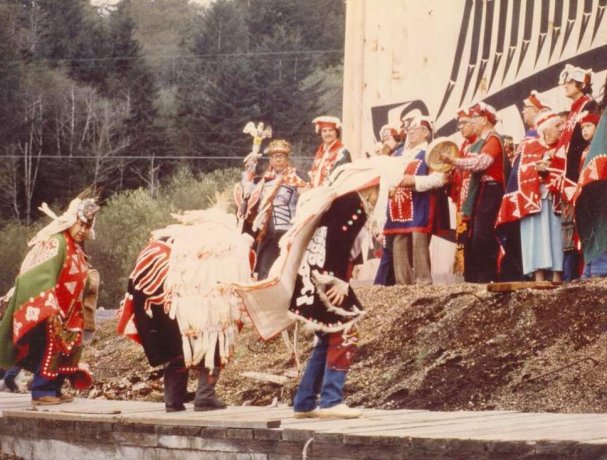Culture of British

Welcome to our guide to the UK. This is useful for anyone researching British culture, customs, manners, etiquette, values and wanting to understand the people better. You may be going to Britain on business, for a visit or even hosting British colleagues or clients in your own country. Remember this is only a very basic level introduction and is not meant to stereotype all Brits you may meet!
Facts and Statistics
Location: Western Europe, islands including the northern one-sixth of the island of Ireland between the North Atlantic Ocean and the North Sea, northwest of France
Capital: London
Climate: temperate; moderated by prevailing southwest winds over the North Atlantic Current; more than one-half of the days are overcast
Population: 63, 742, 970 (2014 est.)
Ethnic Make-up: white (of which English 83.6%, Scottish 8.6%, Welsh 4.9%, Northern Irish 2.9%) 92.1%, black 2%, Indian 1.8%, Pakistani 1.3%, mixed 1.2%, other 1.6% (2001 census)
Religions: Christian (Anglican, Roman Catholic, Presbyterian, Methodist) 71.6%, Muslim 2.7%, Hindu 1%, other 1.6%, unspecified or none 23.1% (2001 census)
Government: constitutional monarchy
Language in the UK
The United Kingdom does not have a constitutionally defined official language. English is the main language (being spoken monolingually by more than 70% of the UK population) and is thus the de facto official language.
Other native languages to the Isles include Welsh, Irish, Ulster Scots, Cornish, Gaelic and British Sign Language.
Immigrants have naturally brought many foreign languages from across the globe.
The United Kingdom
The United Kingdom is comprised of four countries: England, Scotland, Wales, and Northern Ireland. It is important not only to be aware of these geographical distinctions, but also the strong sense of identity and nationalism felt by the populations of these four nations.
The terms 'English' and 'British' do not mean the same thing. 'British' denotes someone who is from England, Scotland, Wales or Northern Ireland. 'English' refers to people from England. People from Scotland are 'Scots', from Wales ‘Welsh’ and from Northern Ireland ‘Irish’. Be sure not to call someone Welsh, Scots, or Northern Irish ‘English’.
The Class System
Although in the past few decades, people from varied backgrounds have had greater access to higher education, wealth distribution is changing and more upward/downward mobility is occurring, the British class system is still very much intact although in a more subconscious way. The playing field is levelling but the British still seem to pigeon-hole people according to class.
Class is no longer simply about wealth or where one lives; the British are able to suss out someone’s class through a number of complex variables including demeanour, accent, manners and comportment.
A Multicultural Society
Formerly a very homogenous society, since World War II, Britain has become increasingly diverse as it has accommodated large immigrant populations, particularly from its former colonies such as India, Pakistan and the West Indies. The mixture of ethnic groups and cultures make it difficult to define “Britishness” nowadays and a debate rages within the nation as to what now really constitutes being a Briton.
The Stiff Upper Lip
The British have been historically known for their stiff upper lip and “blitz spirit” as demonstrated during the German bombings of World War II. This ‘grin and bear’ attitude in the face of adversity or embarrassment lives on today.
As a nation, the Brits tend not to use superlatives and may not appear terribly animated when they speak. This does not mean that they do not have strong emotions; merely that they do not choose to put them on public display. They are generally not very openly demonstrative, and, unless you know someone well, may not appreciate it if you put your arm around their shoulder. Kissing is most often reserved for family members in the privacy of home, rather than in public. You'll see that the British prefer to maintain a few feet of distance between themselves and the person to whom they are speaking. If you have insulted someone, their facial expression may not change.
The British are very reserved and private people. Privacy is extremely important. The British will not necessarily give you a tour of their home and, in fact, may keep most doors closed. They expect others to respect their privacy. This extends to not asking personal questions. The question, “Where are you from?” may be viewed as an attempt to “place” the person on the social or class scale. Even close friends do not ask pointedly personal questions, particularly pertaining to one’s financial situation or relationships.
There is a proper way to act in most situations and the British are sticklers for adherence to protocol. The British are a bit more contained in their body language and hand gestures while speaking. They are generally more distant and reserved than North and South Americans and Southern Europeans, and may not initially appear to be as open or friendly. Friendships take longer to build; however, once established they tend to be deep and may last over time and distance.
Meeting and Greeting
- The handshake is the common form of greeting.
- The British might seem a little stiff and formal at first.
- Avoid prolonged eye contact as it makes people feel uncomfortable.
- There is still some protocol to follow when introducing people in a business or more formal social situation. This is often a class distinction, with the 'upper class' holding on to the long-standing traditions:
- Introduce a younger person to an older person.
- Introduce a person of lower status to a person of higher status.
- When two people are of similar age and rank, introduce the one you know better to the other person.
Gift Giving Etiquette
- The British exchange gifts between family members and close friends for birthdays and Christmas.
- The gift need not be expensive, but it should usually demonstrate an attempt to find something that related to the recipient’s interests.
- If invited to someone's home, it is normal to take along a box of good chocolates, a good bottle of wine or flowers.
- Gifts are opened when received.






